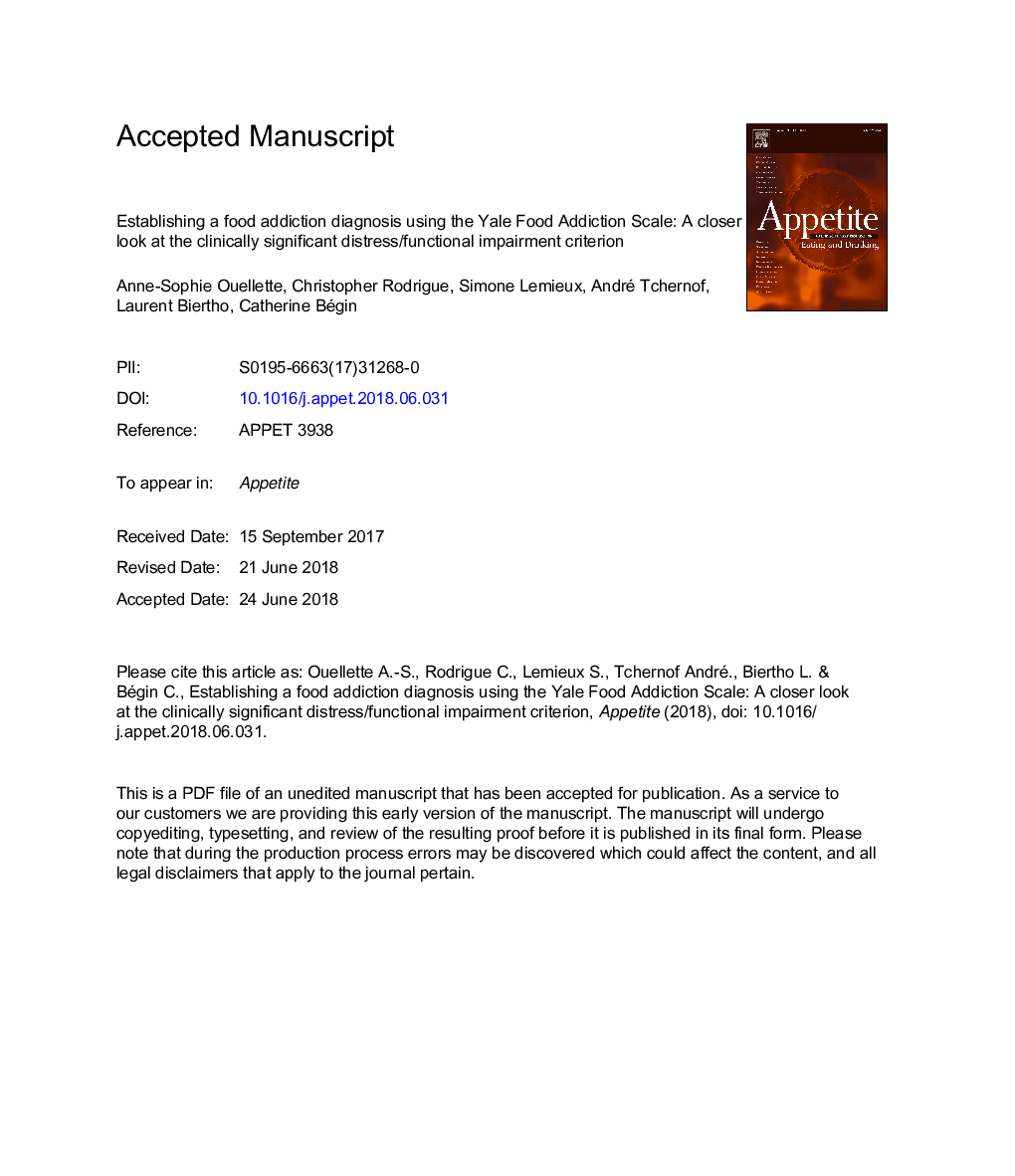| Article ID | Journal | Published Year | Pages | File Type |
|---|---|---|---|---|
| 7305115 | Appetite | 2018 | 33 Pages |
Abstract
The concept of food addiction (FA) represents a set of problematic eating behaviors related to overeating. According to the Yale Food Addiction Scale (YFAS), which was based on the DSM-IV-TR substance dependence diagnostic criteria, a FA diagnosis is assigned when at least three criteria and the criterion evaluating clinically significant distress and/or functional impairment are endorsed. Considering the decisive role of this last criterion, the present study aimed to investigate its endorsement among individuals suffering from severe obesity and awaiting bariatric surgery. A total of 146 individuals were recruited at the Quebec Heart and Lung Institute and were invited to complete various questionnaires. Differences between individuals who endorsed at least three FA criteria and reported distress/impairment (FA+D/I; NÂ =Â 24) and individuals who endorsed at least three FA criteria but did not report distress/impairment (FA-D/I; NÂ =Â 27) were examined. Results revealed that 16% of the total sample fulfilled a FA diagnosis when considering the clinically significant distress/functional impairment criterion; however, this prevalence rate climbed to 35% when removing the inclusion of distress/impairment. Furthermore, individuals from the FA+D/I group showed more FA symptomatology and hedonic hunger, but did not statistically differ from the FA-D/I group on expected markers of psychological distress (depressive symptoms and quality of life). Lastly, the experience of withdrawal symptoms and hedonic hunger were found to be the best predictors of the endorsement of the distress/impairment criterion. This study underlines the impact of this criterion in establishing a FA diagnosis and highlights the importance of considering alternative ways to interpret findings from the YFAS when dealing with clinical samples.
Related Topics
Life Sciences
Agricultural and Biological Sciences
Food Science
Authors
Anne-Sophie Ouellette, Christopher Rodrigue, Simone Lemieux, André Tchernof, Laurent Biertho, Catherine Bégin,
